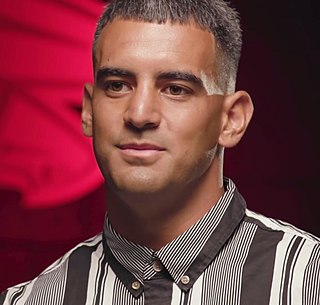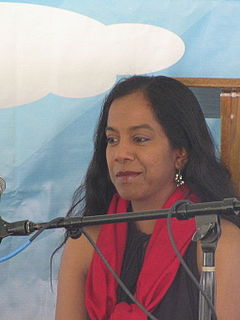A Quote by Nelson Mandela
People respond in accordance to how you relate to them. If you approach them on the basis of violence, that's how they'll react. But if you say, 'We want peace, we want stability,' we can then do a lot of things that will contribute towards the progress of our society.
Related Quotes
There's always a tension between those who would like to garner wealth, and they contribute a lot to society. There's also those who say, 'I believe in the common good. I want that to be enlarged.' They contribute a lot to society. The tension, the debate, between these two views is extremely important to our progress.
If I have ideas, I want to put them in the movie. It's not a minimalist approach at all but I feel like it's for the audience. It's about seeing how much texture we can give it and seeing how many things are there for people to latch on to... I just want to do it the way I want and I feel like it won't be helpful for me if I start worrying about that. I just have to follow my instincts. Everyone is going to respond differently to it and everybody's right - that's their point of view. That's how the story intersects with their lives.
As you develop relationships in your team you have to learn how your teammates react to being yelled at or how to put your arm around them and show them how to do things. You have to build those relationships up and understand who that person is and how they respond and choose your way to lead them to hopefully help everyone out.
My immediate priorities are peace and stability. I want to differentiate between stability and security: Stability comes from the hearts of people and acceptance of the judicial system. Security comes from the barrel of a gun and the threat of the use of force. We're seeing violence at an unprecedented level. We've become numb to bloodletting. Enduring peace cannot come unless we build a state that can guarantee our individual rights and obligations.
I've always wondered what it would be like if the Messiah, or Christ Returned, were actually alive and living in our society; who would that person be, how we would identify them, how would they live and what would they believe in, how would society react to them? I decided to try and tell my idea of that story.
I didn't want to audition the kids so much; I just wanted to talk to them because I like seeing how they are because their mothers usually mess them up with practice. So, I'd rather talk to them and see how they respond. I just throw things at them and see how they can hit the ball back, and Saniyya Sidney was good.
I really try to avoid, you know, rolling out the history. The people are so important to me, and what happens to them, how they react, how things happen to them, this is what is important. I feel that if I can tell THAT story well, then people will go and Google the rest and fill in what they need to know.
I always tell people, "There's a book on everyone." I get some of that book before I do anything. If I want to deeply understand someone's reputation, I'll talk to their friends, their former bosses, their peers, and I'll learn a lot about them. I want them to be trusted. I want them to be respected. I want them to give a s - -. Then there are the intangibles: physical and emotional stamina, the ability to confront issues. I can ask all I want about those things, but I also have to see a lot of it.
For me as a person who's in the arts and as someone who understands the magnitude of our contributions and the price that was paid to contribute to that, that we just have not gotten that together. I will do all that I can to get in front of our kids, to try to teach them, but at a certain point the people have to want it and come towards it.












































